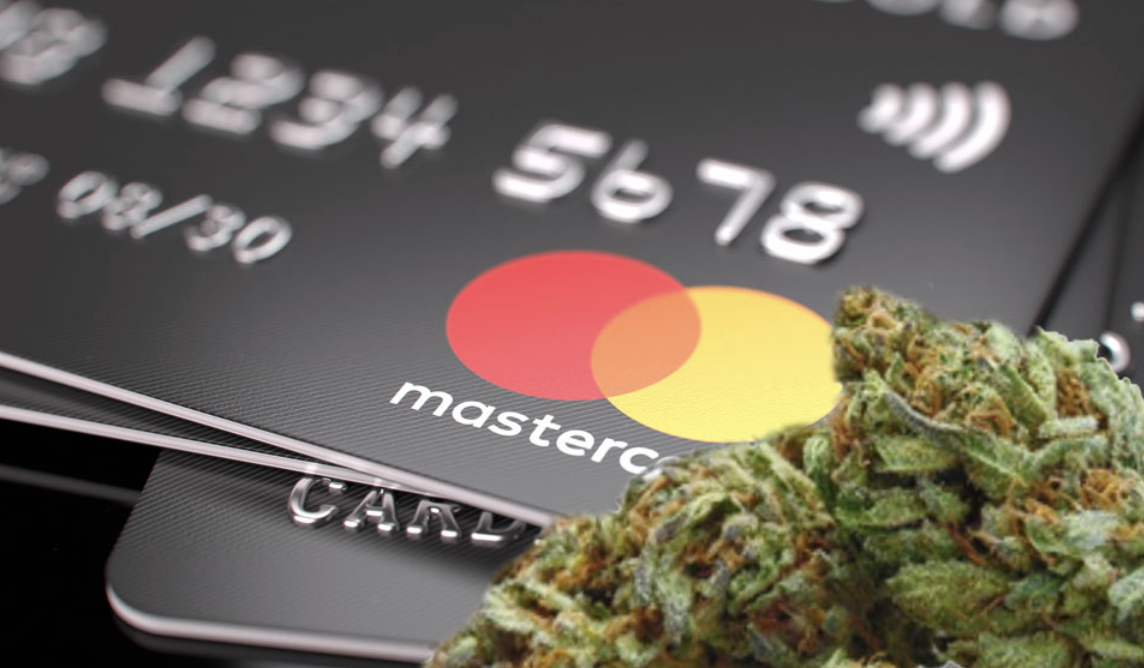CREDIT CARD USAGE NOW AVAILABLE W/ MASTERCARDS BACKOUT
THE REFINERY IN KALAMAZOO MICHIGAN TAKES ON CREDIT CARD USAGE FOR IT’S CUSTOMERS DUE TO THE SHOCKING BACKWARD STEPS IN THE BANKING X CANNABIS WORLD. NOW AVAILABLE!
LIVING IN 2023 CAN BE SOMEWHAT OF A CULTURE SHOCK. BETWEEN NEW AI TOOLS, AN EXCERPT ABOUT FLYING CAR APPROVALS BY 2025, AND OPAQUE PROMISES OF CANNABIS BEING ON THE 2024 BALLOT ARE ALL THRIVING ALONG WITH THE NEW INFORMATION OF MASTERCARD PULLING OUT OF THE CANNABIS INDUSTRY. JUST WHEN WE THOUGHT THE INDUSTRY WAS GROWING, THIS MOVE HAS MADE THE INDUSTRY FEEL AS THOUGH IT HAS TAKEN SOME STEPS BACKWARDS. KEEP READING TO LEARN MORE ABOUT BANKING IN THE CANNABIS INDUSTRY.

Marijuana dispensary owners encounter significant obstacles when seeking financial support for their operations. Numerous present-day cannabis entrepreneurs find themselves constrained by outdated circumstances, lacking access to contemporary financial solutions.Numerous state legislations have granted legality to adult-use cannabis dispensaries, which cater to the demand for both recreational and medical marijuana. However, the federal classification of marijuana as a Schedule 1 controlled substance remains unchanged. Oversight of the banking system falls under the jurisdiction of the Treasury Department at the federal level. Many financial institutions are concerned about potential violations of federal anti-money laundering statutes.Financial establishments face the prospect of being implicated in aiding and abetting a federal offense if they engage with marijuana-related enterprises. The majority of financial service providers have concluded that the risks associated with conducting business in the marijuana sector outweigh the potential benefits. While a limited number of banks might permit cannabis businesses to hold accounts, such instances are scarce. First, let's read about the struggles the cannabis industry already was experiencing before Mastercard decided to pull back from cannabis use.WITHOUT BANKS, MANY DISPENSARIES OPERATE WITH CASH
As any individual operating a small business is well aware, the availability of banking services holds paramount importance. Banks furnish opportunities for loans that facilitate the expansion of enterprises. Moreover, they cater to fundamental operational requirements like payroll management, checking facilities, and credit accounts. In the absence of bank affiliations, marijuana dispensaries find themselves compelled to execute the majority of their transactions using physical currency. This practice introduces a range of complications. Numerous dispensaries are unable to facilitate credit card payments, prompting them to install on-site ATMs to circumvent any unlawful credit or debit card activities.Additionally, the ability to settle state taxes electronically or via checks is unavailable to them. Compliant cannabis enterprises are obligated to personally transport substantial amounts of cash to state tax offices—an endeavor fraught with risk and vulnerability. This process demands hours of perilous travel accompanied by fortified vehicles and armed security personnel. Furthermore, compensating employees with cash wages poses hazards and logistical challenges.
FINDING A WILLING BANK CAN MEAN FEES AND UNCERTAINTY
Certain cannabis enterprises are fortunate enough to discover smaller credit unions willing to collaborate with them. Nonetheless, dispensaries frequently encounter substantial fees in such partnerships. These fees are rationalized by banks due to the additional tasks they must undertake, including the preparation of reports for suspicious activities.Certain cannabis establishments manage to establish bank accounts with unsuspecting financial institutions by adopting a business name that suggests involvement in a different industry. However, in the majority of instances, the bank eventually becomes aware of the cannabis connection and terminates these accounts. If you intend to initiate a bank account for your enterprise, it is advisable to maintain transparency regarding the nature of your business. This approach is essential to safeguarding your reputation and minimizing the risk of potential fraud accusations.BEING LINKED TO MARIJUANA IS BAD FOR BUSINESS BANKING
The absence of conventional banking services has introduced numerous challenges to various aspects of the emerging cannabis industry. The obstacles posed by banking limitations extend beyond just cultivators and sellers. The restrictions on cannabis-related banking also impact suppliers and service providers engaged with marijuana enterprises. This encompasses external parties such as cleaning personnel, plumbing specialists, packaging companies, marketing professionals, and a multitude of others who contribute to the seamless operation of dispensaries, mirroring the functioning of any typical business.
LAWMAKERS COULD DECIDE TO REMOVE BANKING RESTRICTIONS
The cannabis sector is experiencing expansion as more states grant approval for both medical and recreational use of cannabis products. Simultaneously, mounting pressure is being placed on legislators and federal banking regulators to take action.Referred to as the Secure and Fair Enforcement Act, or the SAFE Banking Act, this legislation seeks to alleviate banking-related constraints on businesses tied to marijuana. Introduced to Congress in 2019, the bill has been passed multiple times by the U.S. House of Representatives, yet it has encountered obstacles in the Senate. Consequently, it has not been enacted into law in the United States. If it were to be ratified, it could resolve numerous financial management challenges faced by marijuana-related enterprises.The primary focus of the SAFE Banking Act is to tackle banking impediments within the cannabis industry. It envisions permitting federally regulated banks to collaborate with cannabis businesses authorized by state regulations. Advocates assert that allowing cannabis cultivators and retailers to engage with conventional banks would yield significant benefits. Lawmakers contend that this move would contribute to curbing money laundering, fortifying the economy, and enhancing tax collection enforcement.States that have legalized marijuana are calling upon the federal government for assistance. States like California and Colorado are urging for solutions to rectify the disparities between federal and state regulations.MASTERCARD & WHY THEY DECIDED AGAINST CANNABIS
This week, Mastercard issued instructions to financial institutions in the United States, directing them to discontinue allowing purchases of cannabis through its debit card systems. This move has deprived customers of a convenient method to buy marijuana without using physical cash. The decision by Mastercard has raised concerns among cannabis businesses, who believe it will heighten the risk of theft and violent crime.Due to the fact that federal law prohibits the sale, possession, and usage of marijuana in all its variations, Mastercard stated that transactions involving cannabis would not be permitted on its platforms. This applies even when customers use their bank cards and personal identification numbers (PINs) to access their own funds for purchasing marijuana in states where the substance is legalized for medical or recreational purposes.A spokesperson for Mastercard, one of the world's leading payment processors, stated on Friday, "As we became aware of this issue, we promptly conducted an investigation. In line with our policies, we instructed the financial institutions that provide payment services to cannabis merchants and are linked to Mastercard to cease such activity."Medical marijuana is permitted in 38 states, three territories, and the District of Columbia, while recreational use of the drug is legalized in 23 states, two territories, and the District of Columbia.Morgan Paxhia, who is a co-founder of Poseidon Investment Management, responsible for overseeing AdvisorShares Poseidon Dynamic Cannabis, expressed his views in an interview on Friday. He mentioned that smaller retail establishments might lack the necessary financial means to effectively combat criminal activities. After settling taxes, he explained that there's limited remaining cash available for essential operational aspects, including security. Thus, he noted, this situation disproportionately affects the smaller businesses within the industry.
THE REFINERY DISPENSARY NOW OFFERS CREDIT CARD USAGE
Due to this change in Mastercards decision, we yet again have found a way to help consumers access their medication by offering credit card readers for those who found themselves wrapped up in Mastercards lack of support for the cannabis industry and it’s users. Educating each patient is important to us because with knowledge comes power. With power comes new ways, new light, and new success to the world as a whole when it comes to accepting the science of cannabis and the power it has on the world let alone the knowledge that is, and the knowledge that is to be known.

